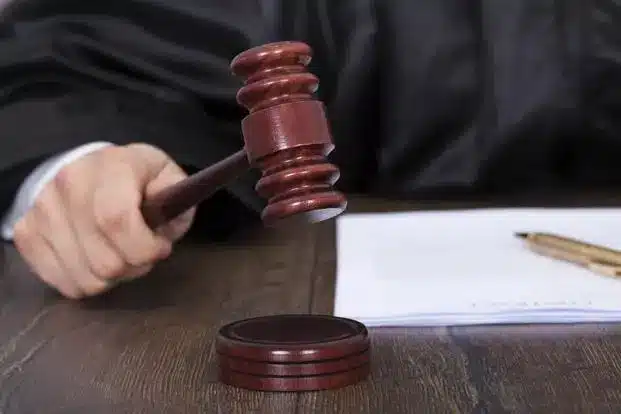About Tribunals
- Tribunals are judicial or quasi-judicial institutions established by law.
- They intend to provide a platform for faster adjudication as compared to traditional courts, as well as expertise on certain subject matters.
- It performs a number of functions, like adjudicating disputes, determining rights between contesting parties, making an administrative decision, reviewing an existing administrative decision, and so forth.
- Constitutional Recognition:
- Article 136 of the Constitution empowers the Supreme Court to grant special leave to appeal from any judgment, decree, order, determination, sentence, or order passed or made by any tribunal in India.
- Article 227 enables every High Court to exercise power of superintendence over all tribunals throughout the territories over which it exercises jurisdiction.
- The 42nd Amendment Act, 1976, inserted Articles 323-A and 323-B.
- Article 323A empowers Parliament to constitute administrative Tribunals (both at the central and state levels) for adjudication of matters related to the recruitment and conditions of service of public servants.
- Article 323B specifies certain subjects (such as taxation and land reforms) for which Parliament or state legislatures may constitute tribunals by enacting a law.
- Evolution:
- 1941: The Income Tax Appellate Tribunal was established as the first tribunal in India.
- 1969: The First Administrative Reforms Commission recommended that the central government set up Civil Services Tribunals at the national level and state levels.
- 1974: The Sixth Law Commission (1974), recommend setting up a separate high-powered tribunal and commission for adjudication of matters in High Courts. This was aimed at reducing the arrears of cases in the High Courts.
- 1976: The Swaran Singh Committee (1976) noted that the High Courts were burdened with service cases by public servants. It recommended setting up:
- administrative tribunals (both at the national and state level) to adjudicate on matters related to service conditions
- an all-India Appellate Tribunal for matters from labour courts and industrial tribunals, and
- tribunals for deciding matters related to various sectors (such as revenue, land reforms, and essential commodities).
- 1976: Articles 323A and 323B were inserted in the Constitution of India through the 42nd Amendment.
- There is a distinction between Articles 323-A and 323-B as the former gives exclusive power to the Parliament and the latter gives power to the concerned State Legislature, which is concurrent in nature, by which the Parliament and the State Legislature can, by law, constitute Tribunals for the respective subjects specified therein.
- After the insertion of Articles 323A and 323B, several tribunals, such as the Central Administrative Tribunal as well as sector-specific tribunals, were set up.
- In 2010, the Supreme Court clarified that the subject matters under Article 323B are not exclusive, and legislatures are empowered to create tribunals on any subject matters under their purview as specified in the Seventh Schedule of the Constitution.
- Composition of Tribunals:
- The presence of expert members (technical members) along with judicial members is a key feature of tribunals, which distinguishes them from traditional courts.
- The Supreme Court has noted that the members of a tribunal may be selected from departments of the central government as well as from various other fields of expertise.
- Only persons with a judicial background (such as judges of the High Court and lawyers with the prescribed experience who are eligible for appointment as High Court Judges) may be considered for appointment as Judicial Members.
- The Supreme Court specified that there is no need of a technical member if jurisdiction of courts is transferred to tribunals to achieve expeditious disposal of matters.
- Term of office: In 2020, the Supreme Court stated that the term of office for the Chairperson and other members must be five years (subject to a maximum age limit of 70 years for the Chairperson and 67 years for other members)
Q1) What is a Special Leave Petition?
The Supreme Court of India has been given extraordinary jurisdiction under Article 136 of the Constitution. By virtue of this Article, the court can grant special leave to appeal from any judgment, decree, determination, sentence, or order in any cause or matter, passed or made by any court or tribunal in the territory of India (with the exception of military tribunals and court martial). It can only be exercised when a substantial question of law or gross injustice has been committed.
Source: Supreme Court rules that tribunals cannot direct government to frame policy
Last updated on July, 2025
→ UPSC Notification 2025 was released on 22nd January 2025.
→ UPSC Prelims Result 2025 is out now for the CSE held on 25 May 2025.
→ UPSC Prelims Question Paper 2025 and Unofficial Prelims Answer Key 2025 are available now.
→ UPSC Calendar 2026 is released on 15th May, 2025.
→ The UPSC Vacancy 2025 were released 1129, out of which 979 were for UPSC CSE and remaining 150 are for UPSC IFoS.
→ UPSC Mains 2025 will be conducted on 22nd August 2025.
→ UPSC Prelims 2026 will be conducted on 24th May, 2026 & UPSC Mains 2026 will be conducted on 21st August 2026.
→ The UPSC Selection Process is of 3 stages-Prelims, Mains and Interview.
→ UPSC Result 2024 is released with latest UPSC Marksheet 2024. Check Now!
→ UPSC Toppers List 2024 is released now. Shakti Dubey is UPSC AIR 1 2024 Topper.
→ Also check Best IAS Coaching in Delhi















